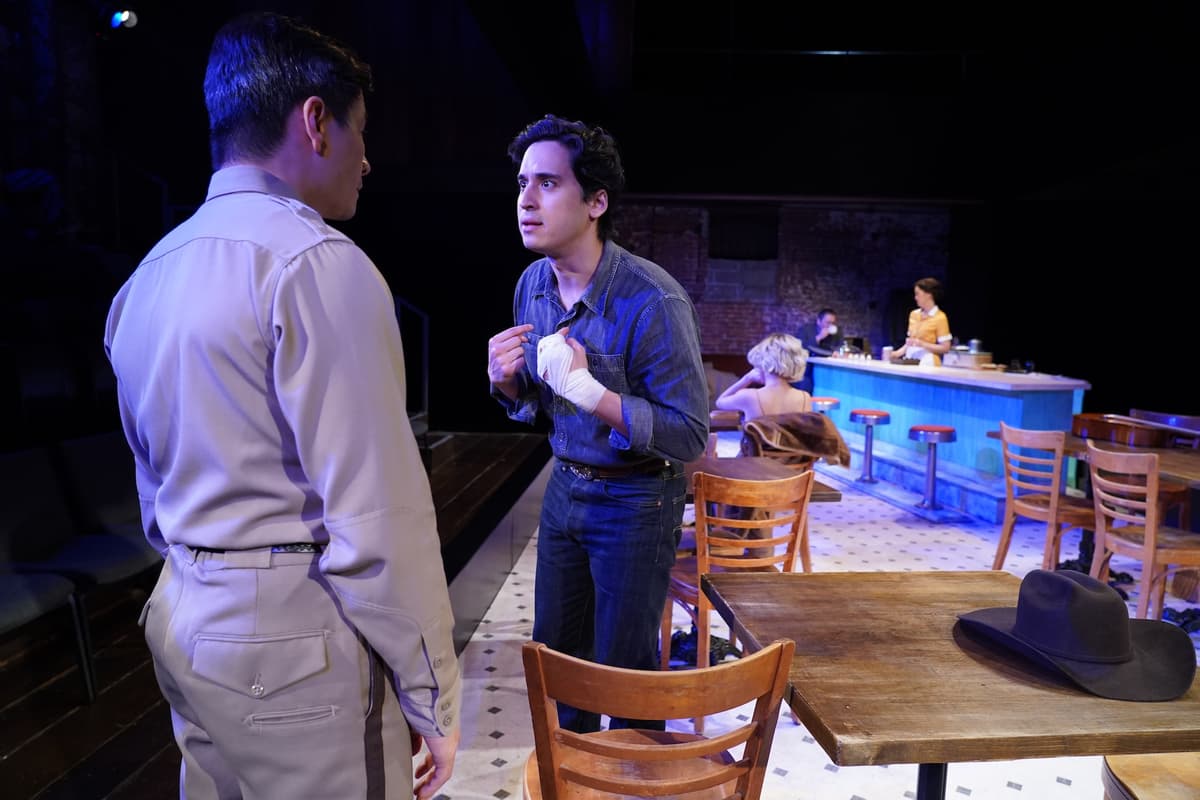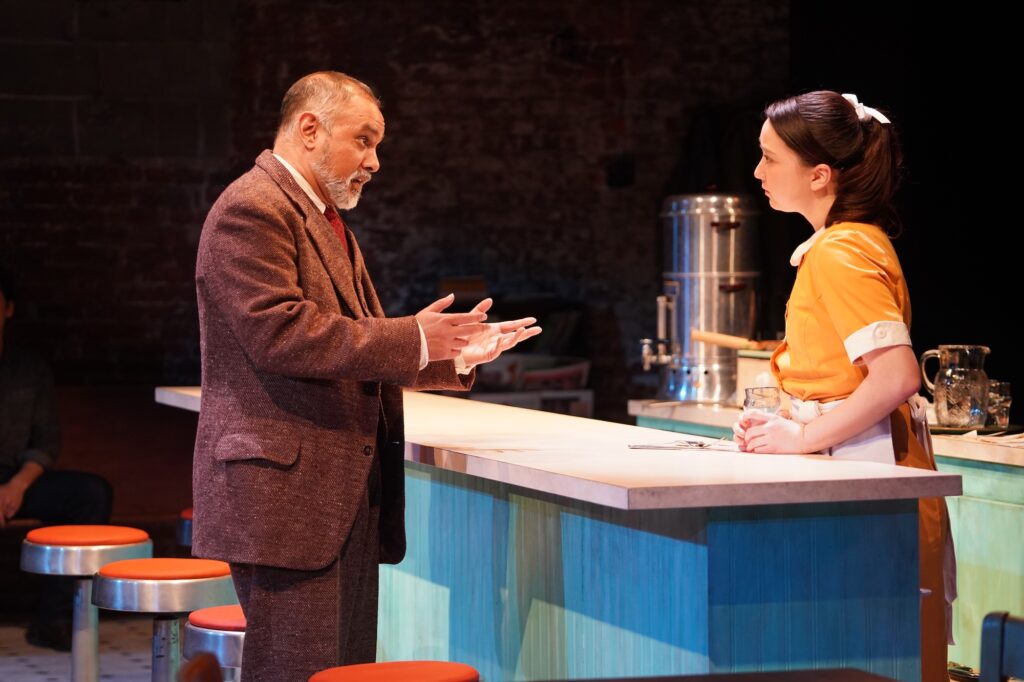Off-Broadway Staging of William Inge’s ‘Bus Stop’ Moves the Once-Popular Playwright’s Work Into the 21st Century
A program note says Inge confronts ‘the loneliness, repression, and disillusionment that haunted post-war America.’ Helming a cast consisting of Asian-American actors, Jack Cummings III explores these issues with a light but sure hand.

In the 1950s, William Inge loomed as large as any American playwright, as works like “Come Back, Little Sheba,” “Bus Stop,” and the Pulitzer Prize-winning “Picnic” established him as a bard of Midwestern, small-town life. Seven decades on, Inge isn’t as widely celebrated as any number of 20th century dramatists, but Jack Cummings III, co-founder and artistic director of an acclaimed theater company, Transport Group, has a theory about that.
In a program note for his new production of “Bus Stop,” Mr. Cummings writes, “Too often dismissed as old-fashioned, Inge’s work is anything but quaint. Beneath the surface of diners, front porches, and saddle shoes lies an extraordinary bravery—a bold confrontation of the loneliness, repression, and disillusionment that haunted post-war America.”
In this off-Broadway staging presented by Transport Group in conjunction with Classic Stage Company and the National Asian American Theatre Company, Mr. Cummings, helming a cast consisting of Asian-American actors, explores these issues with a light but sure hand, mining the play’s humor and its pathos in equal measure.
For the uninitiated, “Bus Stop” unfolds in one of those diners in one of those small towns, in Inge’s native state, Kansas. The action begins in the wee hours of the morning, as Grace, the owner, and Elma, a high school student who works for her as a waitress, prepare for the arrival of a busload of passengers who will, on this occasion, be stranded there for hours, due to a snowstorm.
Scenic designer Peiyi Wong has outfitted Classic Stage Company’s intimate performance space with a modest counter and a sprinkling of tables and chairs, where the characters mill about, commiserating and reflecting, flirting and agitating. There’s the local sheriff, Will, a quietly noble man given an easy dignity by David Lee Huynh; Elma, whose intelligence and naivete are conveyed by an adorable Delphi Borich, expresses a particular admiration for him — and for another older man who will emerge.

That man would be one of the passengers, Dr. Gerald Lyman, a former college professor who immediately stokes our suspicion — and that of the bus driver, a hearty fellow named Carl — by asking if they have crossed state lines yet. We also meet Cherie, a self-described “chanteuse” who’s only traveling, she insists, as the result of having been kidnapped by another passenger, Bo, a young rancher and cowboy who’s also accompanied by his ranch hand, Virgil.
The dynamics between these characters are managed with affection and nuance by Mr. Cummings and the actors, whose race and ethnicity merely underline the universality of the themes Inge explored in a distinctly American context. Cindy Cheung’s brusque Grace is a delight, keeping her feathers as dry as her acidic comments about an eternally absent husband, whom she’s obviously betraying with David Shih’s purposefully clownish Carl.
Cherie, a middle school dropout whose flightiness betrays hard experience, is made glamorous and sweetly sad by Midori Francis, a fetching young actress known to TV audiences for her roles on “Dash & Lily” and “Grey’s Anatomy.” Ms. Francis’s exchanges with Ms. Borich can be especially touching, as their characters — one a precocious but virginal student, the other a young woman who has been pressed by circumstance to focus on her physical charms, and to allow men to do the same — form a tender bond in spite of their differences.
Gerald’s attempts to start grooming Elma, to use the contemporary term, are the play’s creepiest component, but Rajesh Bose gives the poetry-spouting erstwhile academic a melancholy quality, even when Gerald extols the virtues of freedom. Bo, in contrast, wants nothing more than to be tied down in marriage, and Michael Hsu Rosen gives him a guilelessness and a goofiness that mitigate what seem at first to be tendencies toward possessiveness and even violence.
But the most haunting performance in this “Bus Stop” is delivered by Moses Villarama, who captures Virgil’s loyalty and stoicism while gradually, powerfully suggesting the sacrifice behind his sturdy resilience. It’s Virgil who has the play’s last line, a simple but shattering epiphany that drives home Mr. Cummings’s argument about Inge — as does this finely tuned production in general.

